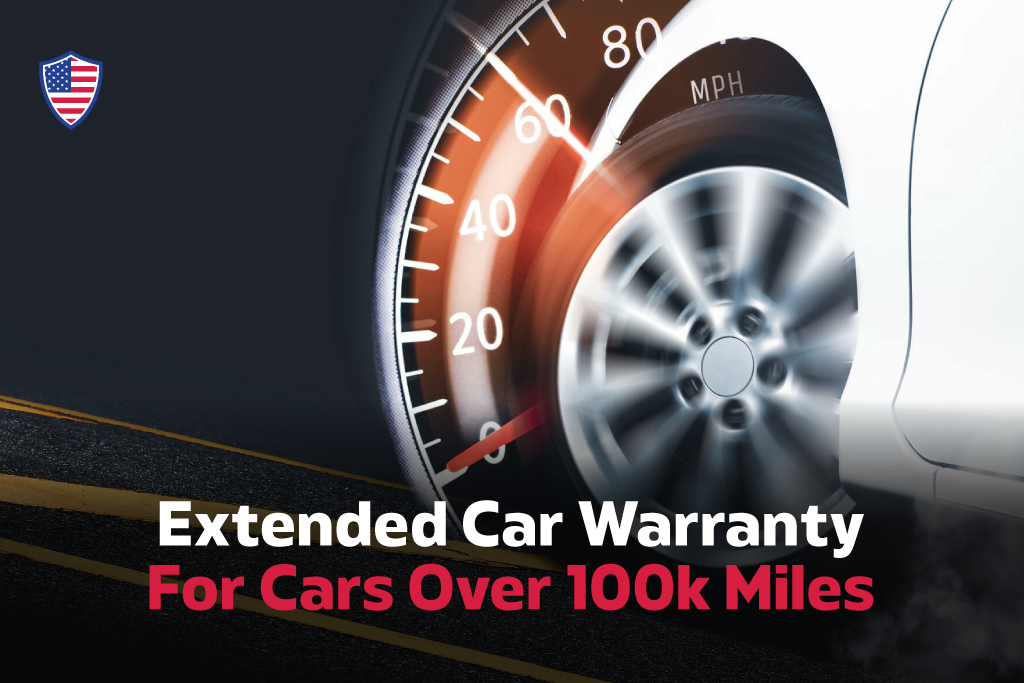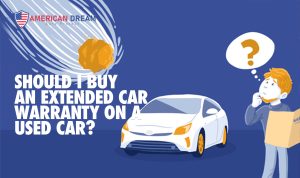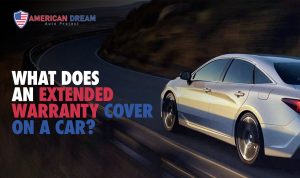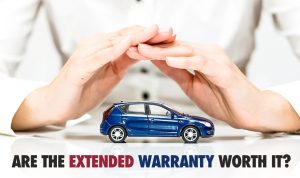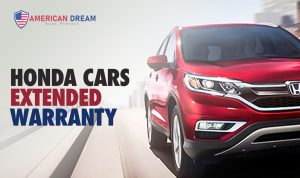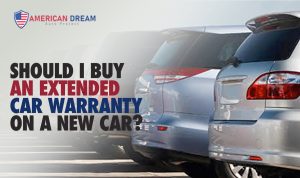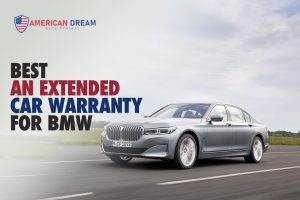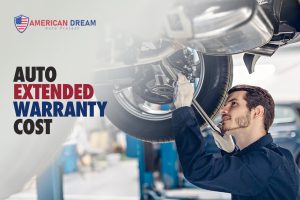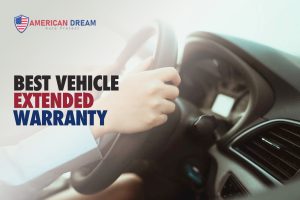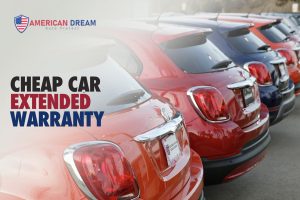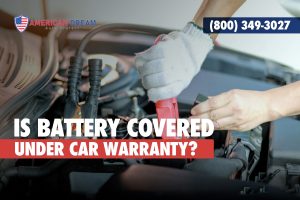An extended warranty can be the best option if you want to prolong the coverage of your factory warranty past the 100,000-mile mark. A lot of the best providers of extended auto warranties focus on providing coverage specifically designed for high-mileage vehicles.
This article delves deeply into a number of topics, including pricing schemes, customer feedback, corporate policies, and even the subtle subtleties hidden in the fine print. By delving into the nuances of each business’s products, we hope to give you thorough insights to support your decision-making. Learn the subtle differences between these extended warranty providers and have a better grasp of the choices you have for protecting your high-mileage car.
What is an Extended Warranty?
A service agreement called an extended warranty is intended to cover your car longer than the typical manufacturer’s guarantee. A manufacturer’s warranty usually covers a certain distance or amount of time, usually up to three years or 36,000 miles. An extended warranty takes over when this coverage ends to protect your car from unforeseen technical issues and repairs. An extended warranty, which can extend coverage for a defined length or mileage restriction, is typically purchased separately in contrast to the initial warranty. By lessening the financial burden of prospective repairs, this extra protection gives automobile owners—especially those with high mileage cars—peace of mind.
It offers an additional degree of protection, protects against unanticipated mechanical problems, and may spare owners from having to pay large out-of-pocket costs. Because mechanical problems are more likely to arise as cars get older and have more miles on them, extended warranties are a wise decision for anybody looking for complete security and long-term peace of mind.
Are Extended Warranties Worth it for Cars Over 100K Miles?
The value of an extended warranty for automobiles with more than 100,000 miles on them requires careful evaluation of a number of variables. Over this mileage barrier increases the likelihood of unplanned repairs since the vehicle becomes more prone to wear and tear. An extended warranty may be very helpful in these circumstances. These warranties serve as a kind of financial safety net, paying for the price of fixing and replacing different parts that could break down from age or heavy use. An extended warranty reduces the financial pressure that may result from unplanned repairs, which gives drivers peace of mind as their car reaches 100,000 miles, when the likelihood of mechanical problems increases.
The choice is contingent upon several factors, such as the vehicle’s dependability, maintenance records, and the owner’s readiness to bear the expense of any necessary repairs. While extended warranties for high-mileage automobiles can be a wise investment, it’s important to carefully consider the terms, coverage, and total cost to be sure the investment fits the owner’s and the vehicle’s particular needs.
Best Extended Warranties for Cars Over 100K Miles
For automobiles with more than 100,000 miles on them, choosing the best extended warranty requires a careful analysis of coverage choices, dependability, and customer satisfaction. A select few exceptional suppliers in this market provide comprehensive programs designed specifically to meet the demands of high-mileage cars. Endurance is a well-known supplier that offers a wide range of coverage choices and a robust service network to guarantee support no matter where you are. Another good option is CARCHEX, which provides individualized plans along with extra benefits like round-the-clock roadside support.
One of Protect My Car’s unique selling points is the variety of coverage choices it offers, including plans that pay for routine maintenance—a feature that will appeal to owners of older cars. When choosing a choice, it’s critical to take into account elements like deductibles, coverage limitations, and user ratings. Even if these companies are well regarded, your own wants and tastes should be taken into consideration when making your choice so that the extended warranty you purchase fits your high-mileage car’s demands exactly.
Extended Auto Warranty for Cars Over 100k Miles: The Bottom Line
Purchasing an extended auto warranty for a car with more than 100,000 miles on it may be a wise choice, but the final say in the matter is dependent on a careful assessment of personal preferences and circumstances. These guarantees address the higher probability of mechanical problems with aged vehicles by providing a layer of financial protection against future repairs. But it’s crucial to pay close attention to the warranty’s terms and conditions, taking into account things like coverage limitations, deductibles, and the provider’s track record for providing excellent customer support.
The appropriateness of an extended warranty ultimately depends on the vehicle’s dependability, maintenance history, and the owner’s risk tolerance, even though several reputable businesses specialize in serving high-mileage cars. To put it simply, prudent decision-making entails weighing the possible advantages of longer coverage against the expense, making sure that the warranty that is chosen suits the unique requirements and expectations of the vehicle and its owner.
Extended Warranties For Cars Over 100K Miles Cost
The price of extended warranties for vehicles that have driven over 100,000 miles can differ greatly depending on a number of variables. Because there is a greater chance of mechanical problems with high-mileage automobiles, the insurance premium is often higher. When calculating the price, providers take into account the car’s age, mileage, make, and model in addition to the selected coverage plan. Compared to plans with fewer features, comprehensive coverage, which covers a wider range of components, is typically more expensive. Deductibles are another factor that affects the total cost; generally speaking, lesser deductibles result in higher rates. Furthermore, the cost may vary depending on the standing and dependability of the supplier of the extended warranty.
Even while extended warranties for automobiles with more than 100,000 miles on them may appear pricey, it’s important to consider the possible savings on future, perhaps costly repairs. Extended warranties offer high-mileage car owners a crucial financial safety net. Prospective customers should carefully consider the terms, coverage specifics, and overall value of a plan before committing to it to make sure the price fits within their budget and provides the appropriate degree of protection.
Extended Car Warranties By Mileage Limits
Mileage-limited extended auto warranties are made to accommodate the various requirements of car owners, taking into consideration the unique needs that emerge as a car accrues mileage over time. These warranties often provide flexibility for owners with diverse usage patterns by giving many levels or plans depending on mileage groups. Milestones that are frequently reached are 100,000, 150,000, or even higher coverage. As the mileage restriction rises, the coverage tends to get broader in order to manage the increased risk of wear and tear that comes with higher usage cars.
These extended warranties become more important for vehicles with mileage beyond 100,000 miles. They include a variety of parts, such as the engine, gearbox, and vital systems including the electrical and brake systems. The coverage frequently covers increasingly expensive and complicated items as the mileage limit increases, offering a thorough defense against unplanned repairs. It is imperative that owners thoroughly go over the terms and conditions of each plan, comprehending the precise elements that are covered as well as any potential exclusions.
Extended warranties can range in price according to mileage restrictions; generally speaking, greater mileage criteria translate into higher premiums. These guarantees, however expensive, provide owners of elderly cars with financial stability and peace of mind by reducing the possibility of large repair bills. Buyers should evaluate their driving patterns, the condition of their car, and their financial restraints when contemplating an extended warranty based on mileage limits. This will help them select a plan that best suits their needs and offers the appropriate amount of coverage.
Car Warranty For Older Cars
Purchasing a car warranty for an older vehicle is a wise choice for owners who want to keep their finances stable and peace of mind as their vehicles age. Older vehicles are more prone to mechanical problems; they are usually the ones with more mileage and greater wear and tear. The financial burden of unplanned repairs might be lessened with an older model-specific auto warranty. These warranties frequently cover a wide range of parts, such as the engine, gearbox, suspension, and electrical systems, that are essential to an older vehicle’s operation.
The possibility for long-term cost savings is a significant benefit of choosing an automobile warranty for older vehicles. Even while the warranty’s initial cost can appear high, it may not be as expensive as the costs associated with needing major repairs on older cars. These warranties serve as a kind of safety net, guaranteeing that owners won’t have to pay large repair costs that often come with a car’s aging process.
Conclusion
Securing a dedicated car warranty for older vehicles is a prudent choice for owners seeking to navigate the challenges of aging cars with financial confidence. These warranties act as crucial safety nets, alleviating the burden of potential major repairs and offering long-term cost savings. While the upfront investment may seem substantial, the protection and peace of mind they provide can far outweigh the financial strain of unforeseen repairs on older models. However, meticulous research into coverage options, provider reputation, and the specific needs of the vehicle is essential to make an informed decision. Ultimately, a well-chosen car warranty for older cars not only safeguards against unexpected expenses but also ensures a smoother journey for both the vehicle and its owner as time takes its toll.
FAQs
Can I purchase an extended warranty for a car with existing mechanical issues?
While some warranty providers may offer coverage, many have restrictions. It’s crucial to check the terms and conditions of the warranty, as pre-existing conditions might not be covered.
Do I need to follow a specific maintenance schedule to keep the warranty valid?
Some warranties may require adherence to a manufacturer-recommended maintenance schedule. Skipping or delaying routine maintenance could potentially void the warranty.
Are wear-and-tear items like brake pads and tires covered under extended warranties?
Extended warranties typically focus on major components, and wear-and-tear items may not be covered. It’s essential to understand the specific inclusions and exclusions of the warranty.
Can I transfer my extended warranty to a new owner if I sell my car?
Not all warranties are transferable. Some may allow transfers for a fee, while others may not permit it at all. Check with the warranty provider for their transfer policy.
What happens if my car breaks down in an area where the warranty provider doesn’t have service coverage?
Understanding the warranty provider’s network of repair facilities and their policies for towing and roadside assistance is crucial, especially if you frequently travel to areas with limited service coverage.

